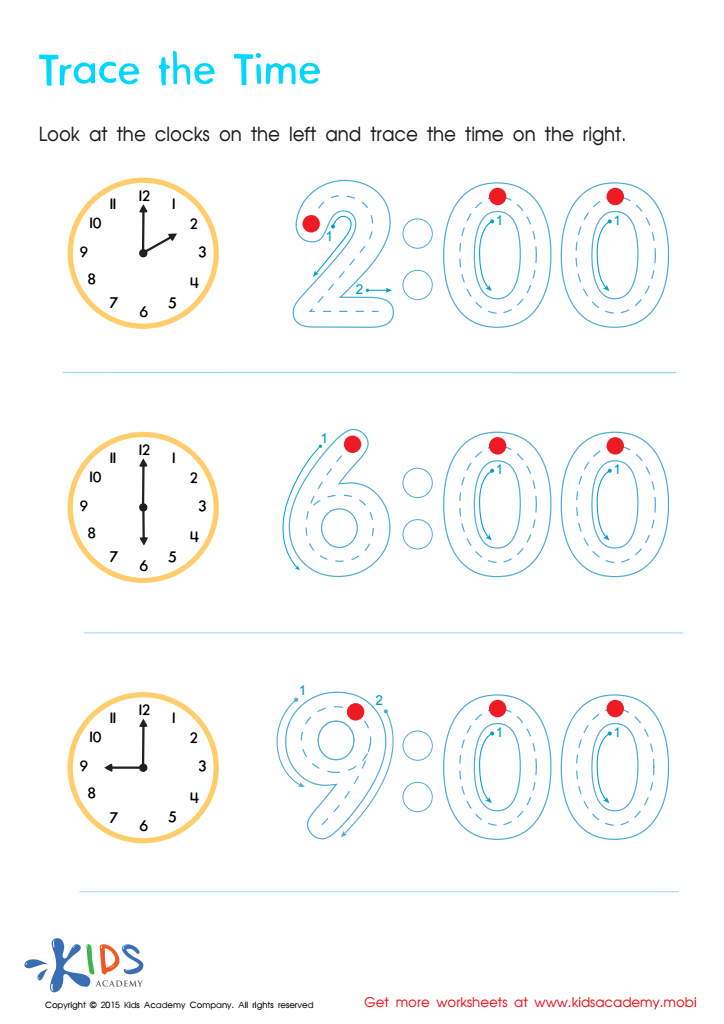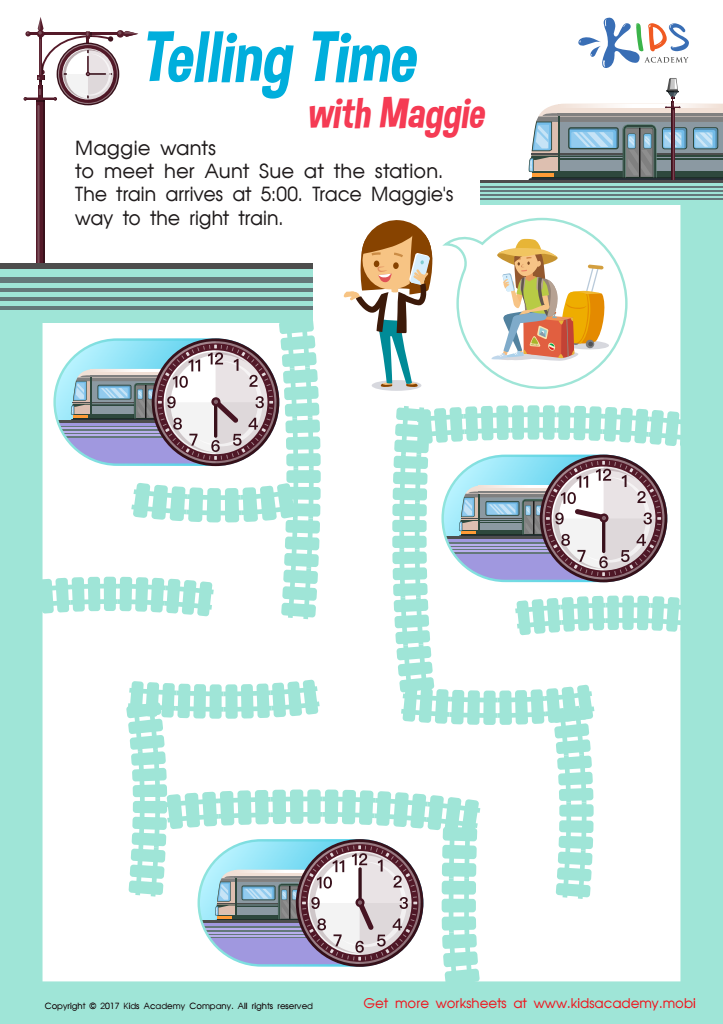Understanding clocks Worksheets for Ages 4-6
3 filtered results
-
From - To
Explore our engaging "Understanding Clocks Worksheets for Ages 4-6" designed to introduce young learners to the concept of time. With vibrant illustrations and interactive activities, these worksheets help children recognize clocks, understand hour and minute hands, and tell simple time with ease. Our carefully crafted lessons encourage critical thinking and enhance fine motor skills as kids draw, color, and match times with everyday scenarios. Perfect for home or classroom, these resources provide a fun and effective way to instill a foundational understanding of time. Start your child’s journey to mastering time-telling with our captivating and educational worksheets today!


Telling The Time Worksheet: Part 2


Telling Time With Maggie Time Worksheet
Understanding clocks is essential for children aged 4-6 as it lays the groundwork for crucial life skills. At this stage, children are developing their cognitive abilities and ability to grasp abstract concepts. Learning to read a clock introduces them to the concept of time, which reinforces their understanding of sequences, intervals, and routines. Time management is a vital skill as they grow, affecting everything from daily schedules to school activities.
Moreover, when children learn to read both analog and digital clocks, they gain a sense of independence and responsibility. For instance, recognizing when it's time to wash their hands or leave for school fosters autonomy and promotes self-discipline.
In addition, engaging with clocks can enhance their mathematical understanding. Counting minutes and hours introduces them to basic arithmetic concepts, such as addition and subtraction.
For parents and teachers, fostering an early love for time-telling can create richer learning experiences. Activities such as storytelling about time, playing time-related games, and integrating clocks into daily routines can make learning fun. Overall, nurturing these skills promotes confidence, organization, and critical thinking in young learners, setting them on a path toward academic and personal success in the future.
 Assign to My Students
Assign to My Students





.jpg)











